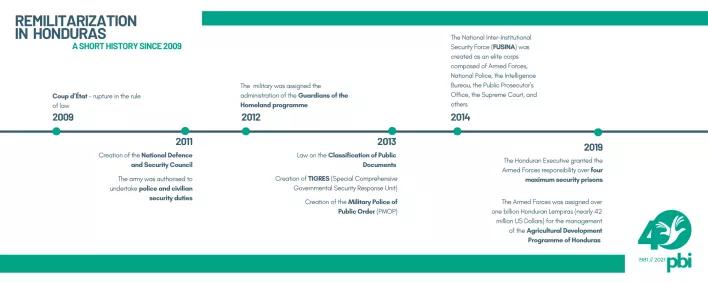PBI Honduras in 2021: accompanying in the face of increased criminalization
Forty years after Peace Brigades International was founded and at nine years since we first arrived in Honduras, we are continuing to provide integral accompaniment to organizations and human rights defenders at risk: “International presence is the indigenous communities’ bulletproof vest” (Donald Hernández, coordinator of CEHPRODEC).

